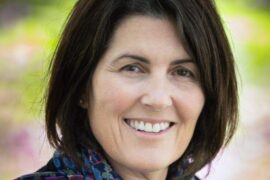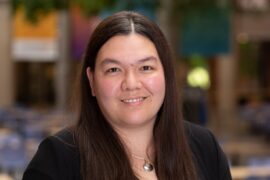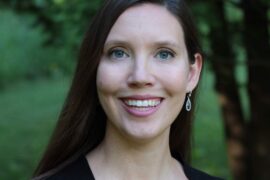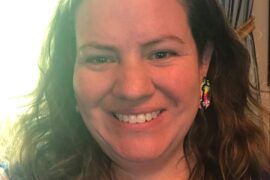I am a researcher of Euro-Canadian descent. As a health care provider, I was concerned by the ways in which health systems failed to meet the needs of the people it was meant to benefit. Now, I work in partnerships with Inuit, Métis and First Nations communities in research studies aimed at enhancing their opportunities for participation in their health decisions through the development of shared decision making tools and approaches.
Author Team
Who We Are
We are a team of Indigenous and non-Indigenous scholars who share a deep concern for the ways in which the conduct of research often fails to consider the perspectives of Indigenous people, perpetuates injustice in our health and social systems, and contributes to health inequities.
As researchers we have been active in partnered research for many years.
Some of our team were involved and/or provided leadership in the development of the CIHR Guidelines (see PDFs linked in About ICRP). The team has continued to further thinking about ethical practice and Indigenous perspectives in health research. As a result, the training resource modules have been created to be shared to promote ethical research practices with Indigenous partnerships.
Author Team
Our team consists of a growing number of contributors.
Together, we are known as the Group for Ethics and Engagement in Indigenous Community Research Partnerships (EIP).
Dr. Janet Jull, OT, PhD
Dr. Alexandra King, MD, FRCPC
I am a member of the Nipissing First Nation, and Indigenous wellness is among my research passions that is contributing to a growing Two-eyed Seeing evidence base of interventional wellness research. Indigenous health research ethics – how to work well with Indigenous people – is another. I am also an Internist, specializing in HIV/AIDS, hepatitis C and related issues.
Dr. Malcolm King, PhD, FCAHS
I am a member of the Mississaugas of the Credit First Nation, and a health researcher at the University of Saskatchewan. From 2009 to 2016, I led the CIHR Institute of Aboriginal Peoples’ Health as its Scientific Director, spearheading the development of a national health research agenda aimed at improving wellness and achieving health equity for First Nations, Métis and Inuit in Canada. I continue to teach and research in Indigenous health, with a particular focus on wellness and engagement.
Dr. Melody Morton Ninomiya, PhD
I am of Japanese and Swiss-German Mennonite descent and upbringing. I am often working on community-partnered research projects driven by First Nation communities across Canada who are developing, implementing, and evaluating various health and wellness strategies. I also do research in two other areas: 1) knowledge mobilization in community-driven research and 2) community and government partnered research projects connected to fetal alcohol spectrum disorder (FASD).
Dr. Ian Graham, PhD
I am a health sociologist by training and a health services and knowledge translation researcher. Much of my research program focuses on studying how integrated knowledge translation approaches (research co-production) works and with what impacts. I have been a member of health research teams that are partnering with First Nations and Inuit communities. Between 2006 and 2012 I was seconded to the CIHR as its Vice President for Knowledge Translation and Public Outreach.
Dr. Penny Moody-Corbett, PhD
I was trained in basic biomedical sciences, and have expertise in oversight of research ethics and integrity, serving as Chair of the Ethics Committee for the International Union of Physiological Sciences. In supporting research activities for students, faculty and staff as Associate Dean of Research at Northern Ontario School of Medicine, I have worked closely with communities of Northern Ontario to encourage respectful and collaborative research practices, organizing and supporting Indigenous Research Gatherings to hear directly from Indigenous communities.
Dr. Julia Moore, PhD
I am the Senior Director at the Center for Implementation. I was originally trained as an implementation scientist, but now support the application of implementation science to improve the implementation, spread, and scale of evidence-based practices and programs. I work with government and non-government public health and healthcare agencies to implement evidence and improve outcomes.
Dr. Lindsay Brant, PhD
Lindsay Brant is a Term Adjunct, Indigenous Curriculum and Ways of Knowing in the Smith School of Business. She is a Mohawk woman from the Mohawks of the Bay of Quinte band, in Tyendinaga Mohawk Territory, Ontario. Lindsay is also a doctoral student in the Cultural Studies program at Queen’s and her research includes social justice and peace-based studies in relation to applying foundational principles of the Haudenosaunee Great Law of Peace as critical to teaching and learning praxis and theories. She examines the intersectional ways in which Indigenous ways of knowing and being facilitate, promote, and sustain peaceful relationship building, mentorship, and network building in the academy, community, and beyond.
Acknowledgements
The training resource has been developed with the support of so many individuals, communities, and importantly, the lands on which we stand. We extend our gratitude for all the gifts contributed to this project.
We are grateful for and thank the Elders, Knowledge Holders and community members who contributed to the development of the CIHR Guidelines for Health Research Involving Aboriginal People (2007-2010), the source of inspiration for the work presented in this training resource.
We are grateful for the important contributions to this training resource by our valued colleague, Dr. Jaime Flamenbaum, CIHR Senior Ethics Advisor / Science Policy Branch.
We would also like to thank the Office of Indigenous Initiatives at Queen’s University. Their tremendous support has contributed greatly to the successful launch of the ICRP project. A Queen’s Certificate version of the training can be accessed via their website.
Funding Details
The training resource was funded by a grant from the Ontario SPOR Support Unit (#60152 OSSU POR) and the Canadian Institutes of Health Research (FRN 178420).
Development & Design
The ICRP training resource was first presented in the publication that serves as an evidence-base for the training resource curriculum and design (see Jull, J, King A, King M, Graham ID, Morton Ninomiya M, Jacklin K, et al. A Principled Approach to Research Conducted with Inuit, Métis and First Nations People: promoting engagement inspired by the CIHR Guidelines for Health Research Involving Aboriginal People (2007-2010). The International Indigenous Policy Journal. 2020 May; 11(12). doi: https://doi.org/10.18584/iipj.2020.11.2.10635.). The website and branding are by Rebecca Sweetman, Associate Director of Educational Technologies and the design team at Arts and Science Online, Queen’s University.
To learn more about the training and the importance of equitable research partnerships in addressing health inequities, read this article published in The Conversation and this IKT Research Network interview with Dr. Janet Jull.








